Kerry Thomson kicks off campaign for Bloomington mayor: “A public that labels itself ‘progressive’ deserves to see some progress.”
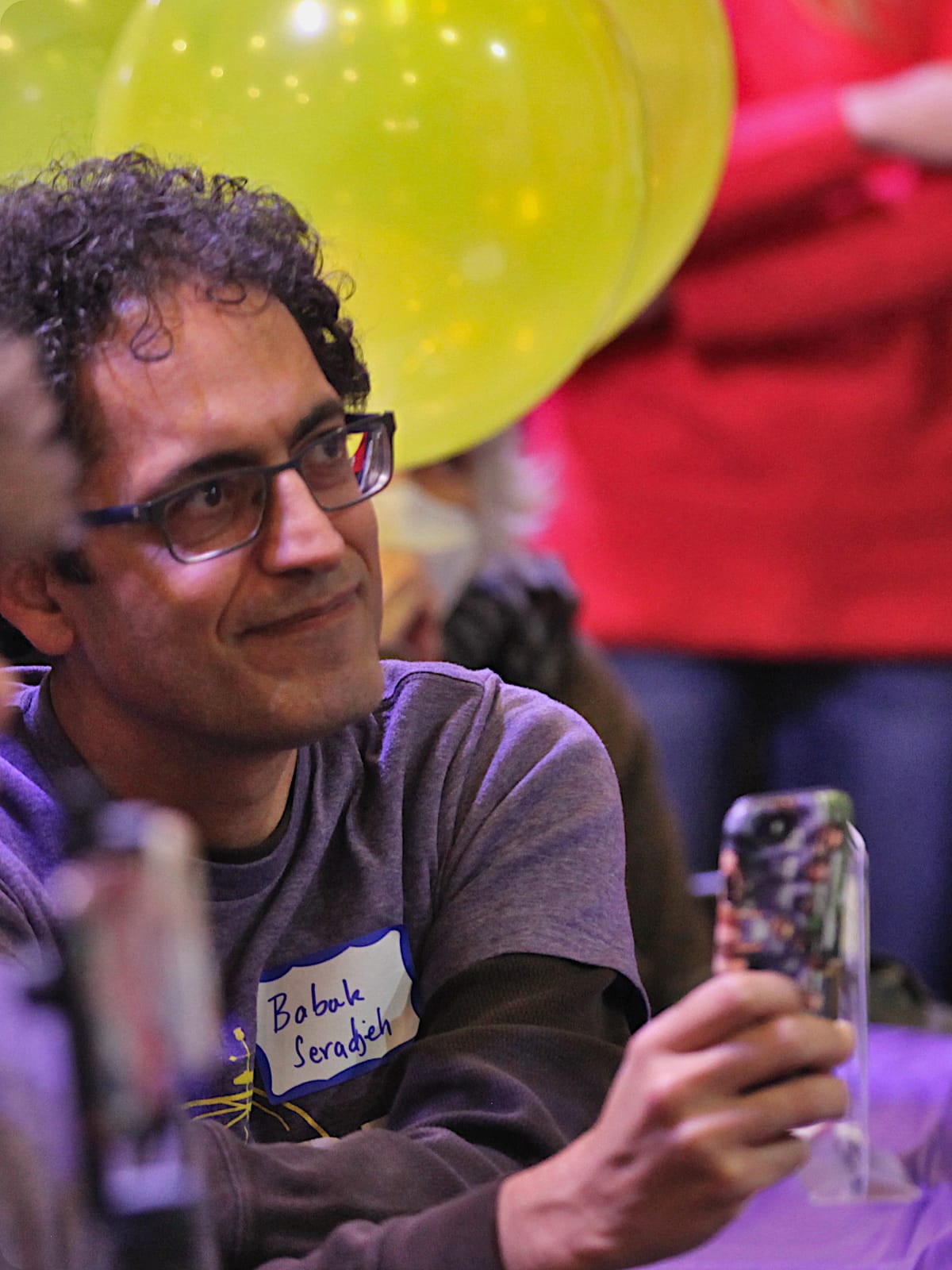
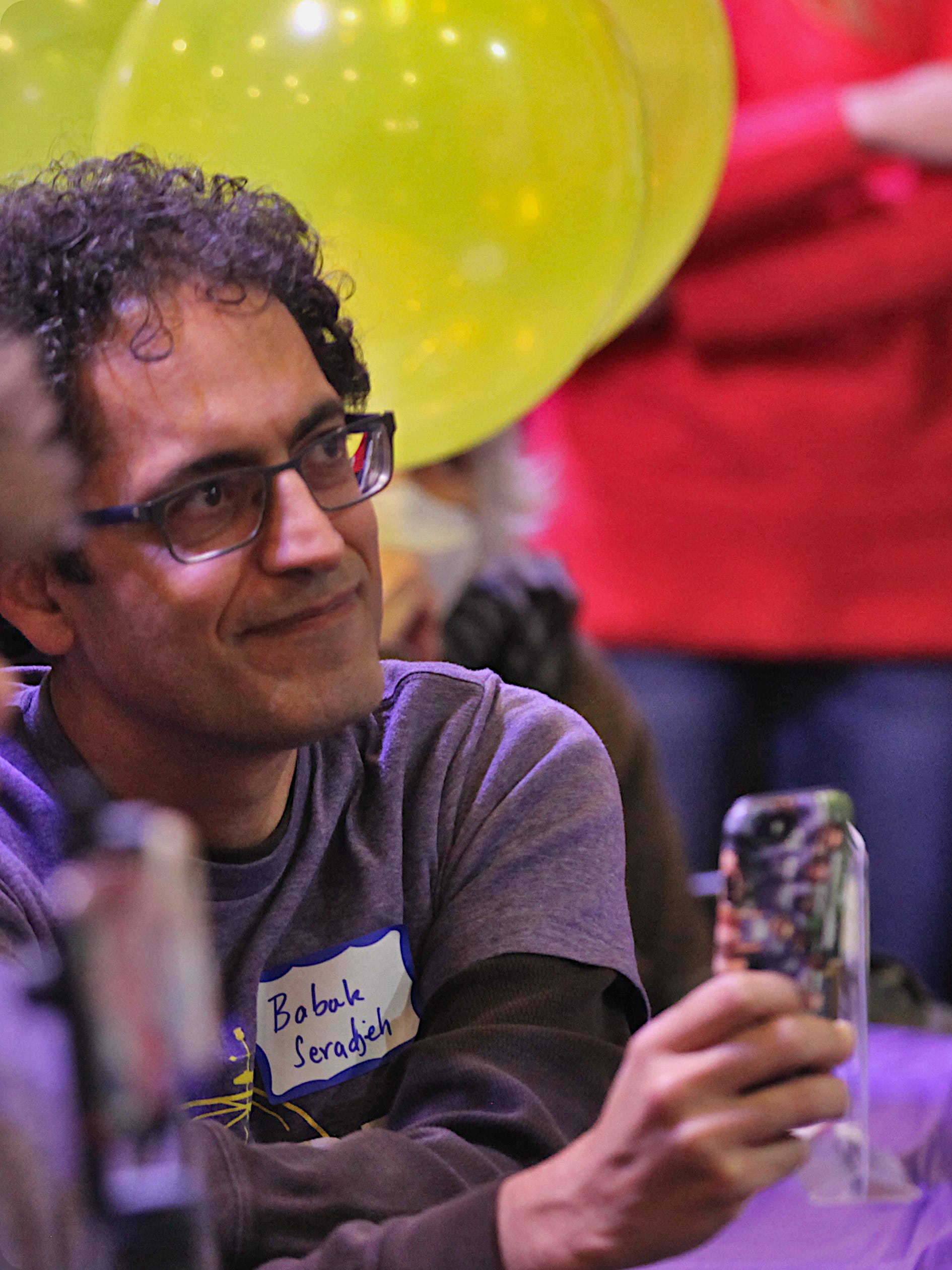
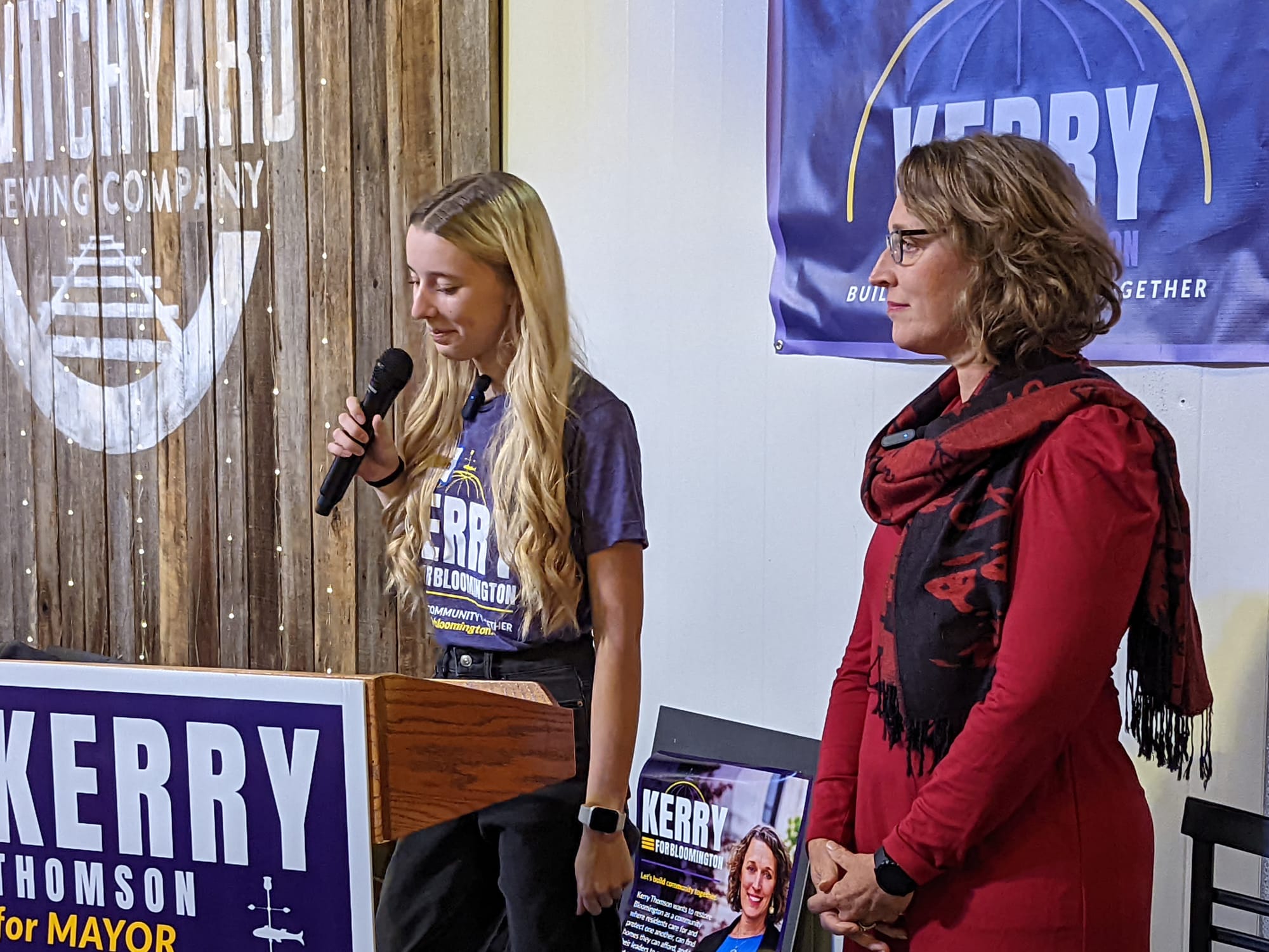

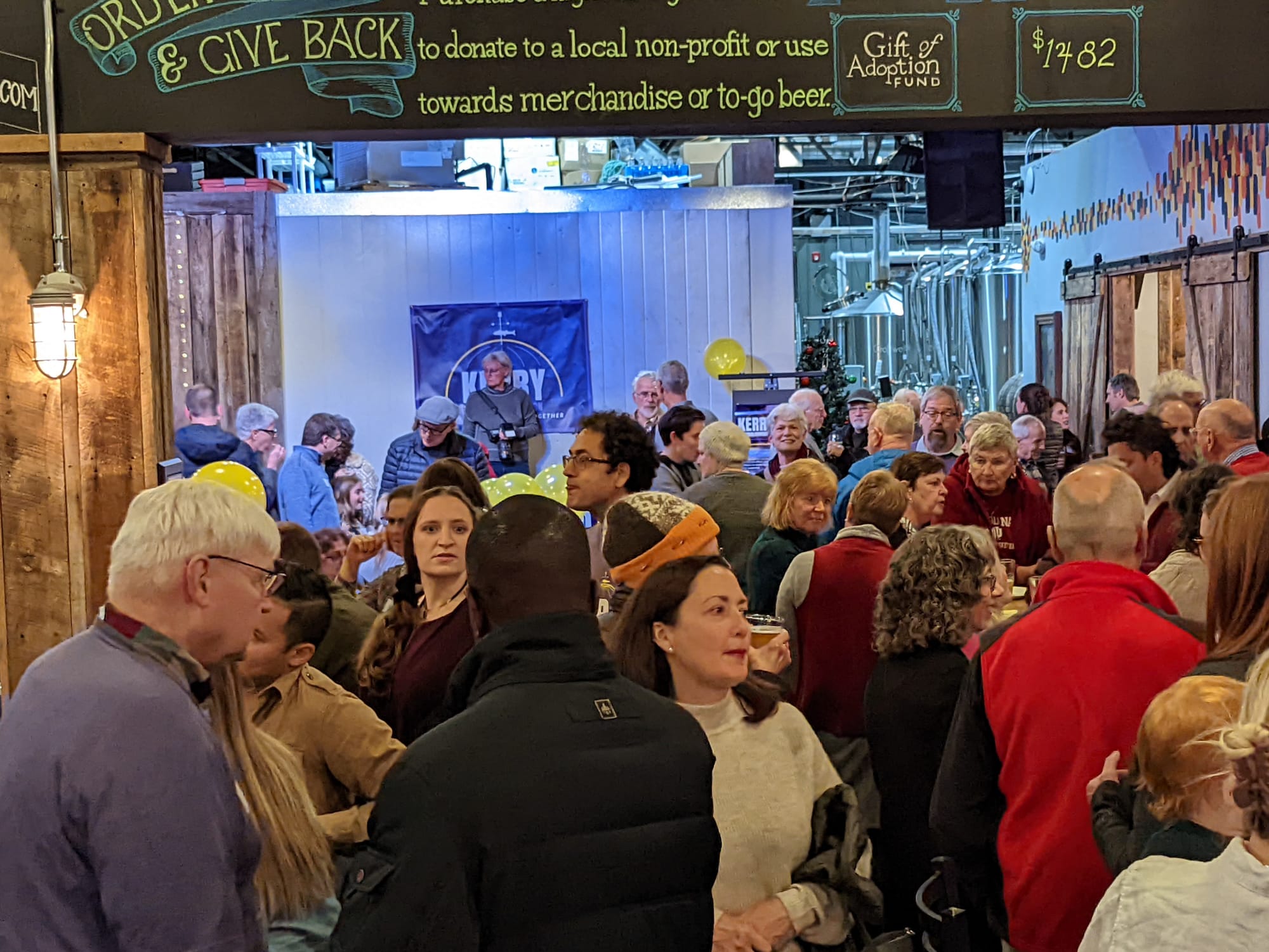
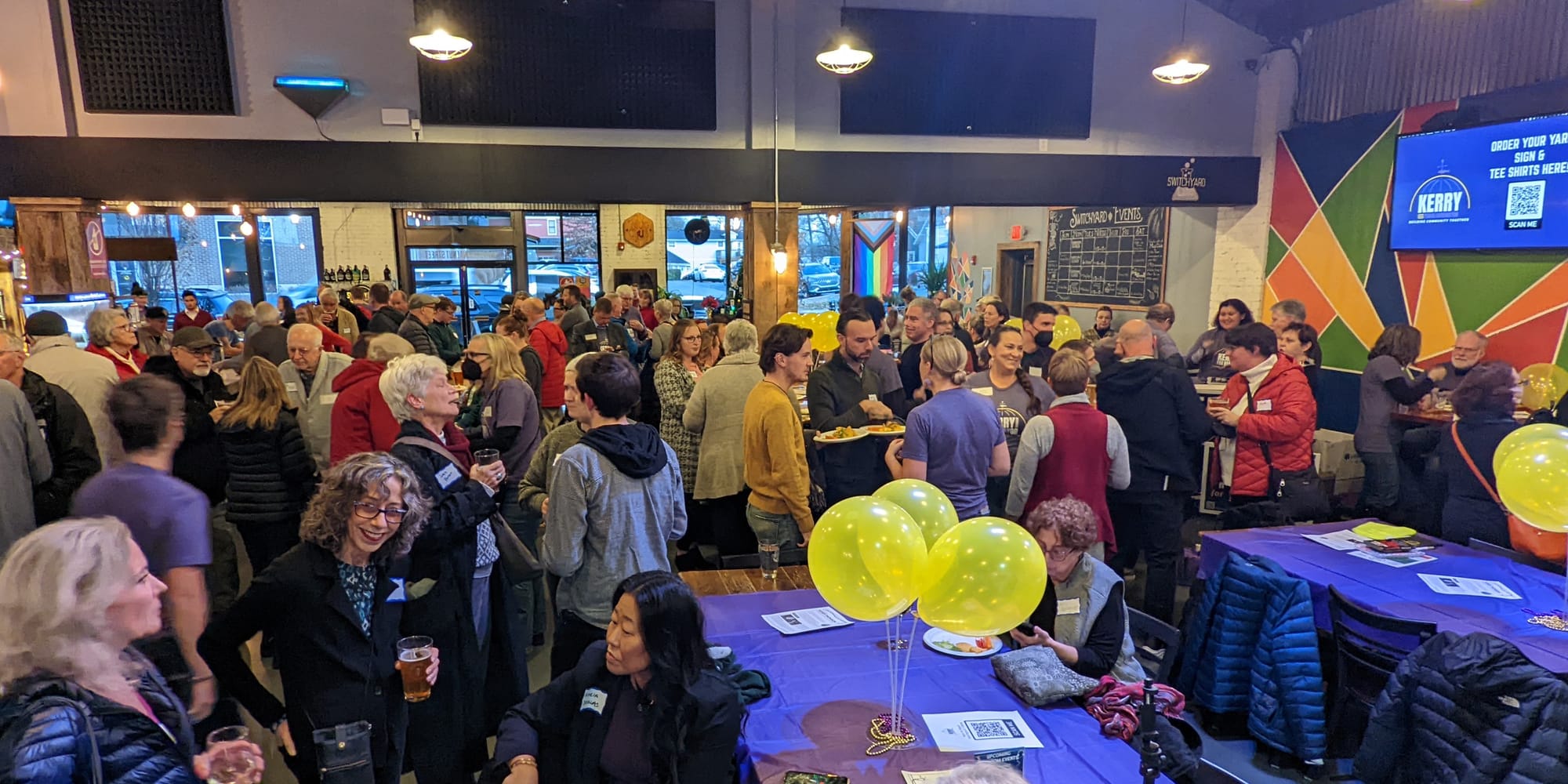
On Thursday, at a gathering of nearly 200 people at Switchyard Brewing on Walnut Street in downtown Bloomington, Kerry Thomson kicked off her 2023 campaign to become Bloomington’s next mayor.
About an hour before Thomson’s event, incumbent mayor Democrat John Hamilton had announced that he won’t be seeking a third four-year term.
Thomson led off her remarks with a recognition of Hamilton’s news: “I don’t know if anybody has heard, but John Hamilton decided he’s not running.”
She added, “We are grateful for his service to the city. And we are building forward with new leadership in the city of Bloomington—that’s what we know.”
So far at least, there are two declared candidates for the Democratic Party’s nomination for mayor in the 2023 race—Thomson and city council president Susan Sandberg. Their candidacies won’t become official until they file the paperwork in early 2023.
Since late 2018, Thomson has served as executive director of Indiana University’s Center for Rural Engagement (IUCRE). The center’s website describes the IU initiative as tapping the research, expertise, teaching, and service of IU Bloomington faculty, staff, and students to create connections between non-land-grant, research institutions and rural communities.
Thursday’s gathering was Thomson’s second public campaign event. In June, at Bloomington Bagel Company on Dunn Street, she hosted a celebration of her announcement that she was making a mayoral bid.
At June’s event, Charlotte Zietlow, who has served as a city councilmember and a county commissioner, introduced Thomson to the crowd. Zietlow said, “Several years ago…I talked to Kerry. And I said, you know, we need somebody who is gonna listen and who will hear what people are saying. And have you considered running for mayor?”
Zietlow reported that Thomson said at the time: “No, absolutely not!” Zietlow called that “a good sign of sanity”—which drew its intended laugh from the crowd. Zietlow wrapped up: “But she thought it over. And she’s also gotten older and wiser.”
On Thursday, it was Thomson’s daughter, Caroline, who made the introduction. She alluded to a time when she was critically injured in a boating accident: “When my life was on the line, she’s the only person that made me believe I could make it through.”
Caroline talked about her mother’s former role as CEO of Habitat for Humanity of Monroe County. Thomson served in that position from 1997 to 2017.
Caroline said, “We have parks filled with people in need. And all we hear about the help that they have received is getting kicked out of and banned from the places that they call home.” Her mother has a track record of providing shelter for people by building houses, Caroline said.
When she took the mic, Thomson said, “As a first-time candidate for public office, I know that the road ahead won’t be easy.”
Thomson continued, “But as a nonprofit leader, with more than 20 years of executive experience, leading complex and large organizations to address very real problems, and as a mom and a wife, and someone who chose Bloomington as my hometown, I know it’s worth this work.”
Thomson recounted how she came to choose Bloomington as a place to live. “In 1995, I rode my bicycle from San Francisco to DC. I stopped in Bloomington for just 36 hours. And that was long enough for me to understand this was a city that was so exceptional, I had to live here.”
Thomson said that something about Bloomington she couldn’t comprehend until she moved here was “this deep sense of community that Bloomington has.” She described that sense of community as “the way that we treat each other,” adding, “It’s the way that we welcome other people. It’s our gatherings, around art and music. It creates a sense of belonging in an ever-changing population.”
Bloomington’s exceptionality has started to slip, Thomson said: “Our city has sidelined huge problems, allowing them to grow to crisis levels.”
Thomson reported out from the listening sessions she’s been hosting over the last few months. “I’ve heard about unchecked giant apartment complexes, tax increases, failed annexations, inability to cooperate with the county, a city bureaucracy unfriendly to business and even water we can’t drink,” Thomson said.
A line from Thomson that drew applause: “What I’ve heard in listening sessions is this: Why are we spending millions on bike lanes and annexation lawsuits when we have people living in tents?”
Thomson asked, “Why do we quibble over parking garages when no one can move into this town, because there’s not a place to live?”
Thomson said, “It’s time for a fresh approach, an inclusive approach, an approach tied to impact and to results. We need to work together.”
“We’re servants of our public,” Thomson said, adding, “A public that labels itself progressive deserves to see some progress.”
Photos: Kerry Thomson campaign kickoff (Nov. 17, 2022)
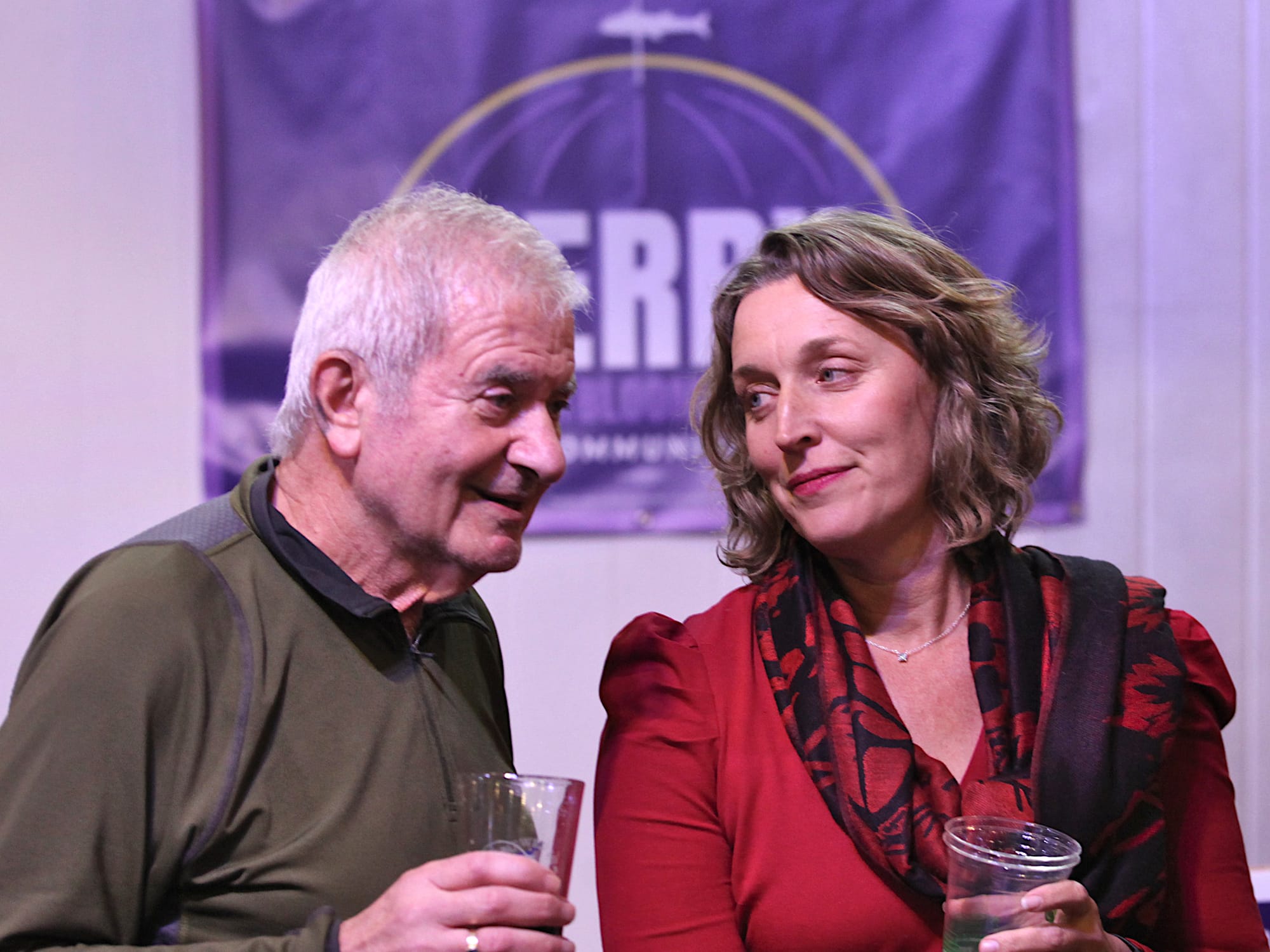
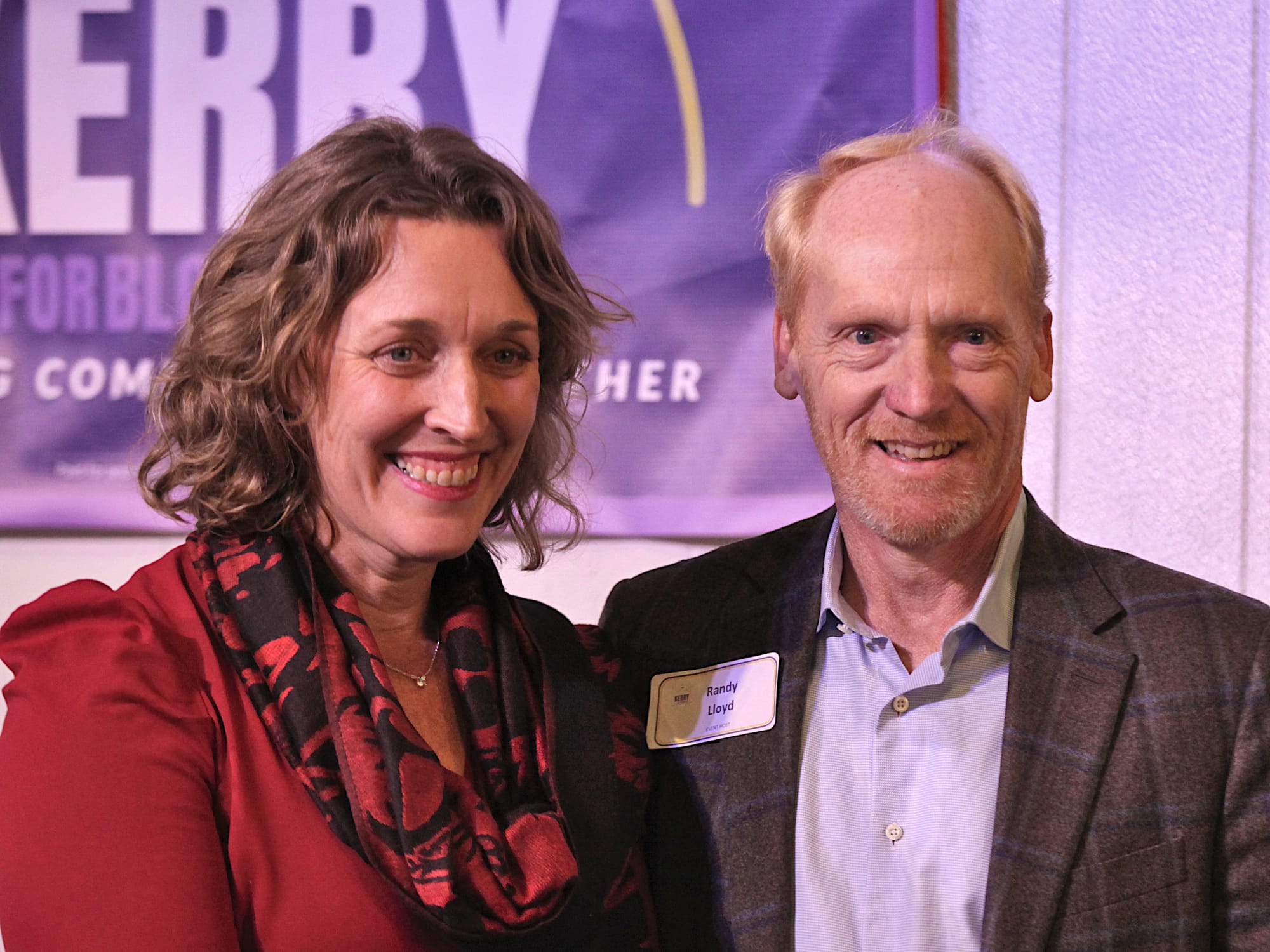
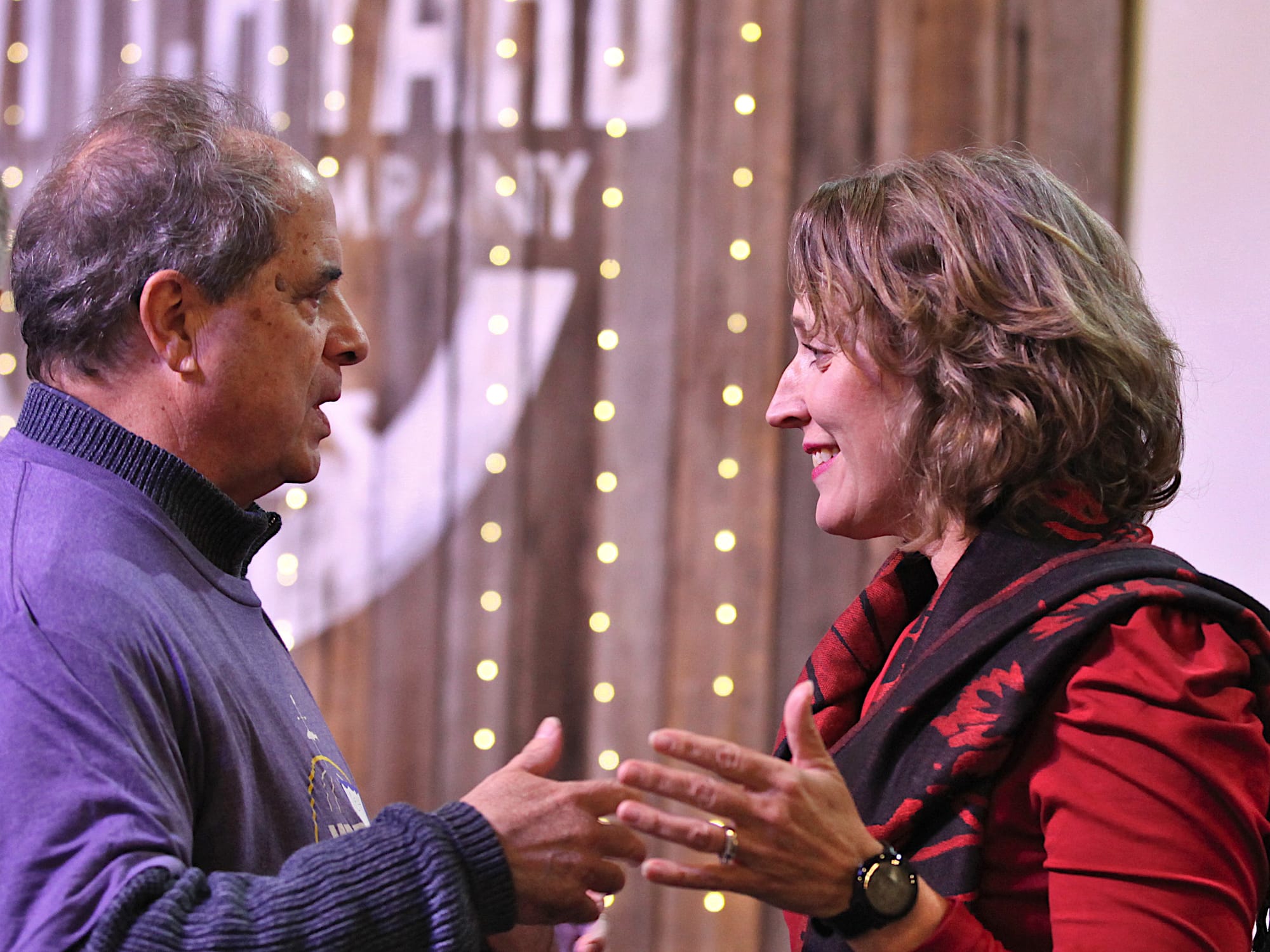
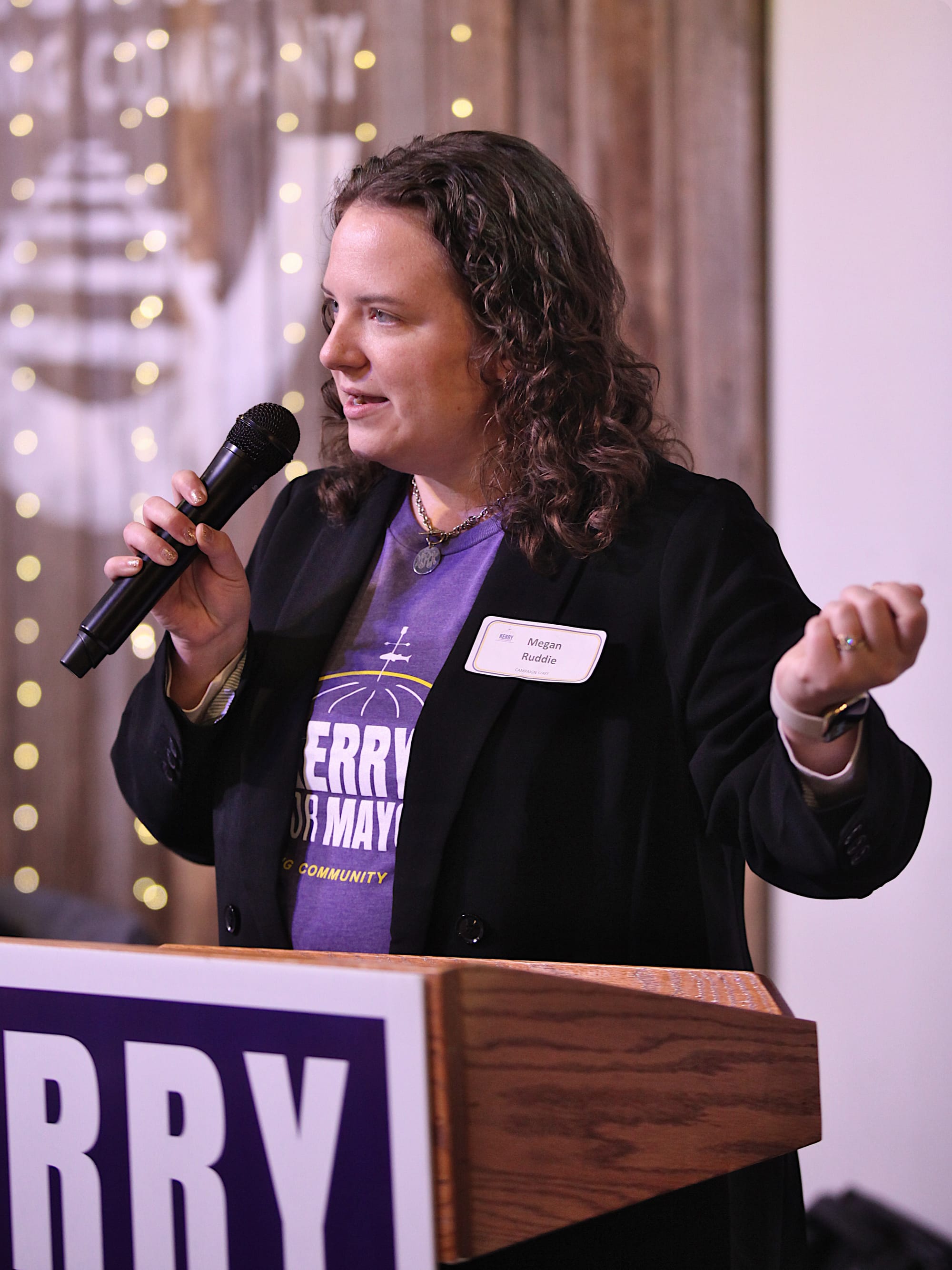
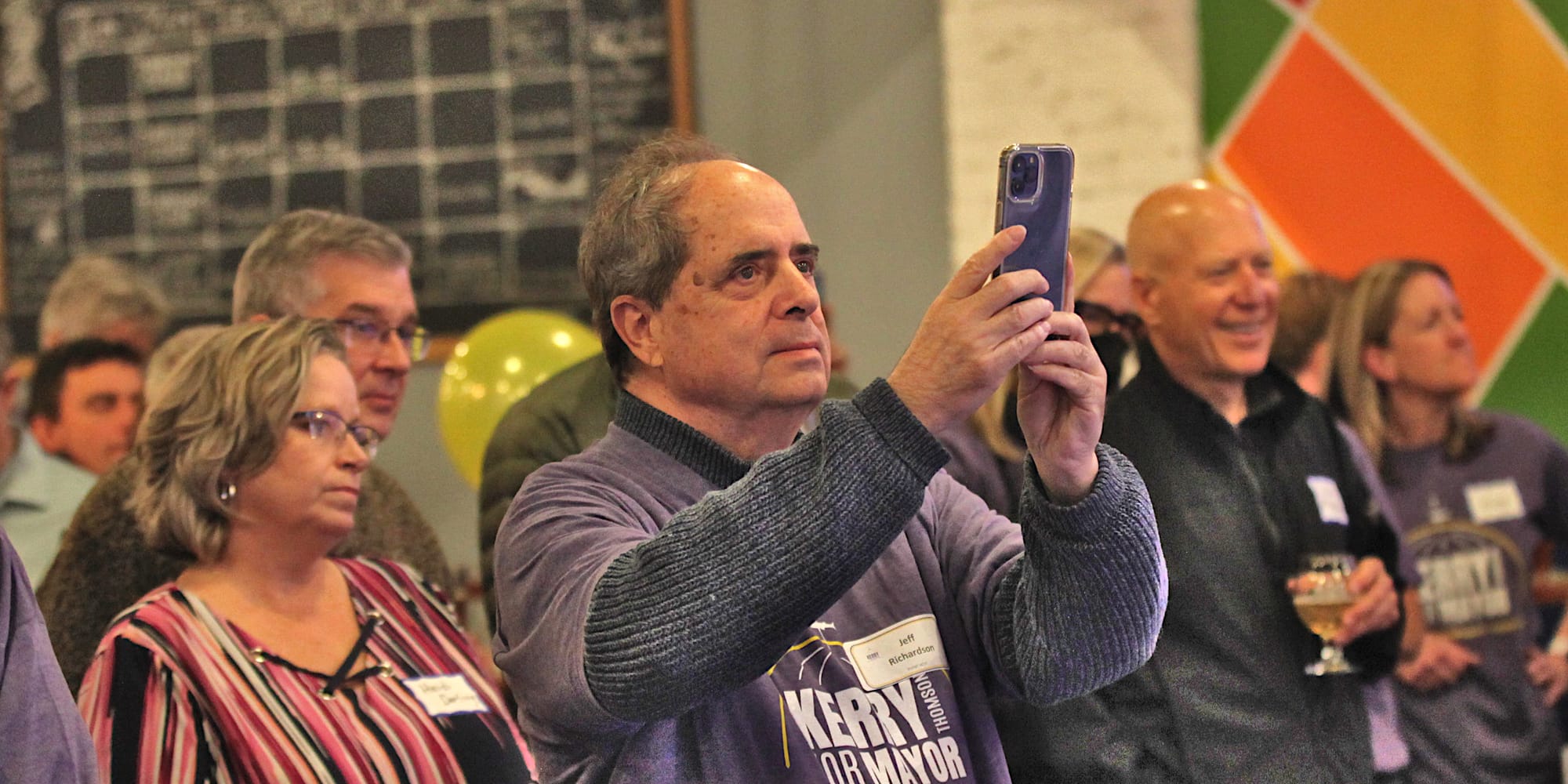




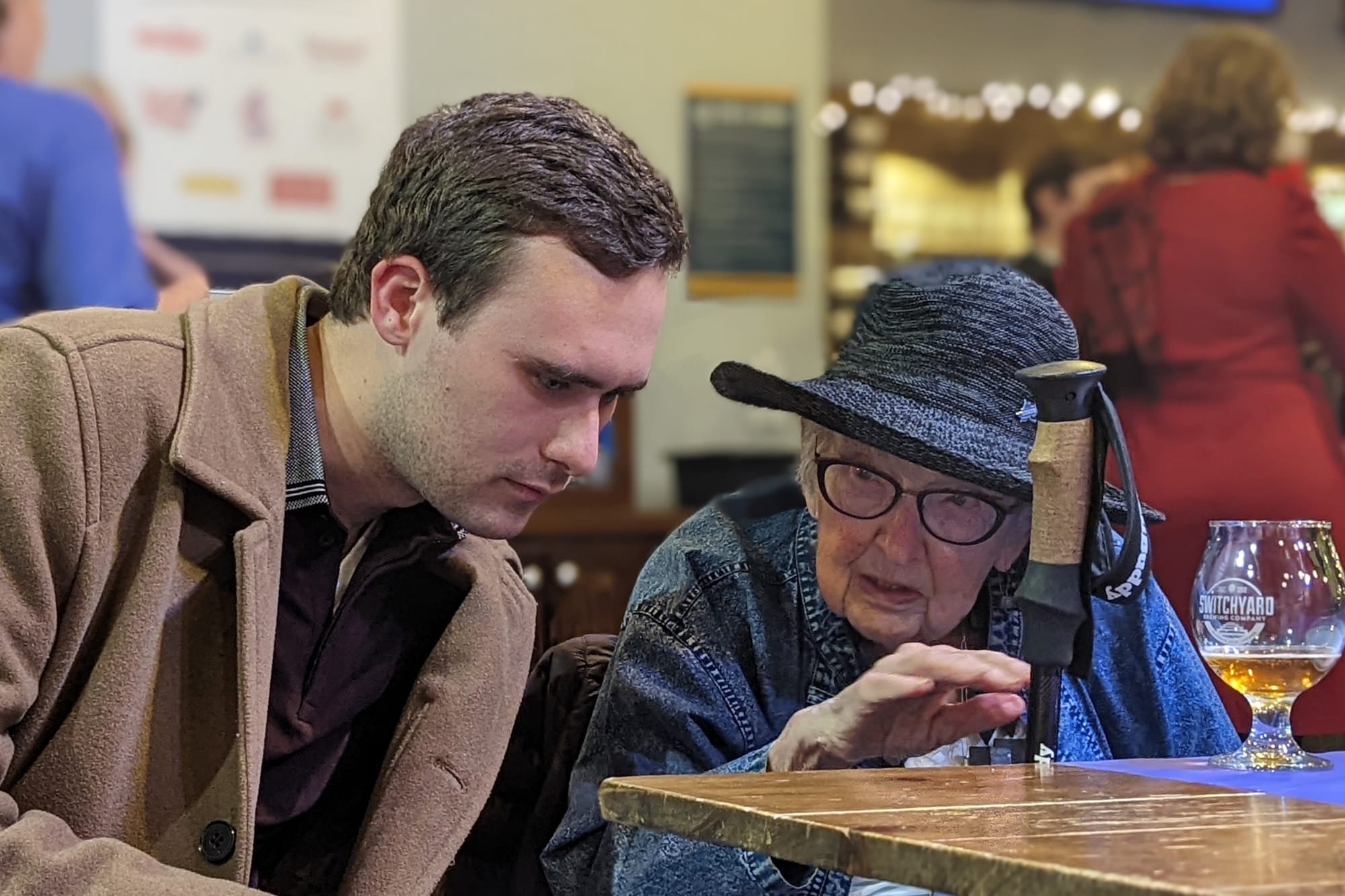

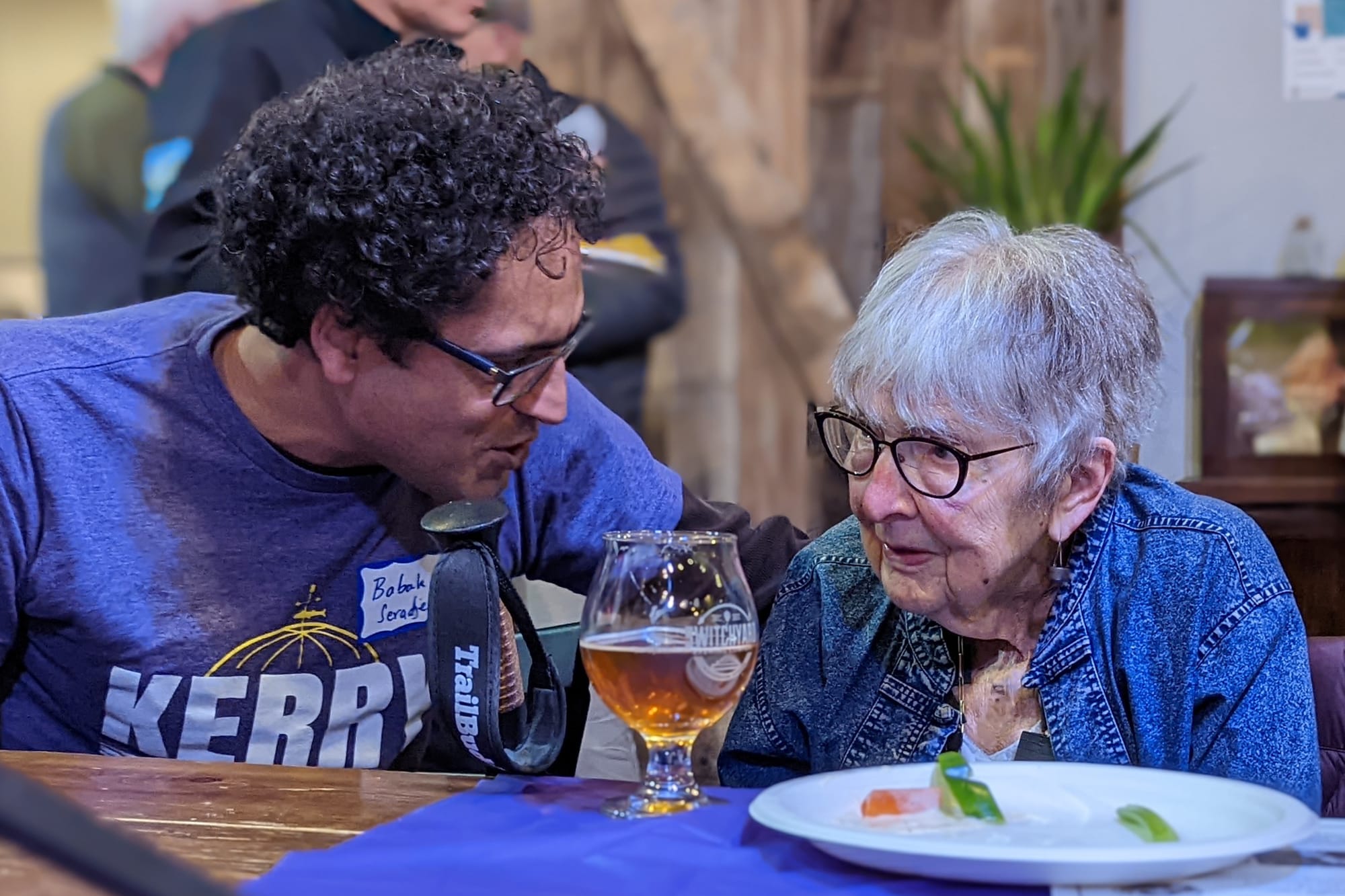
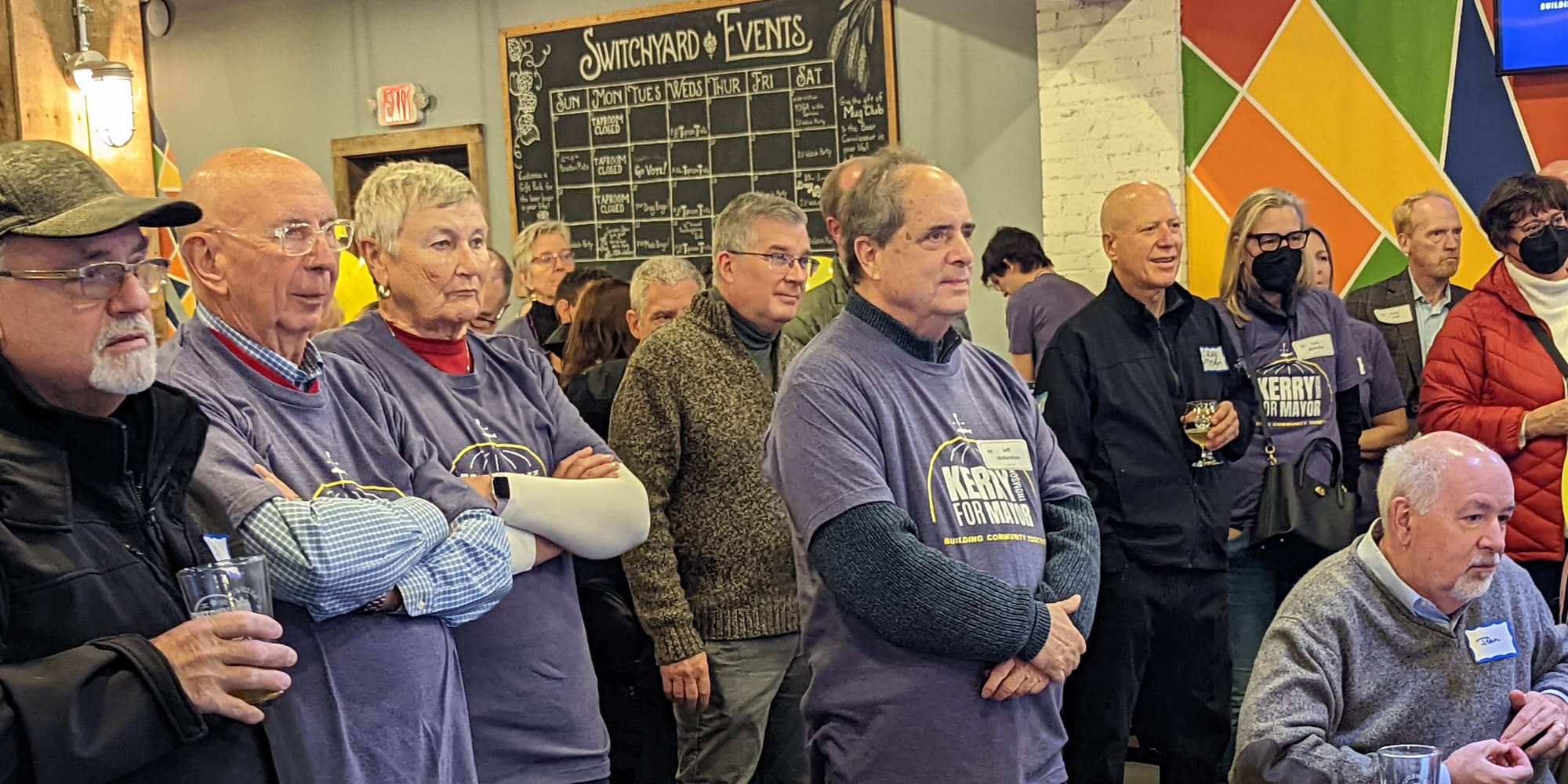

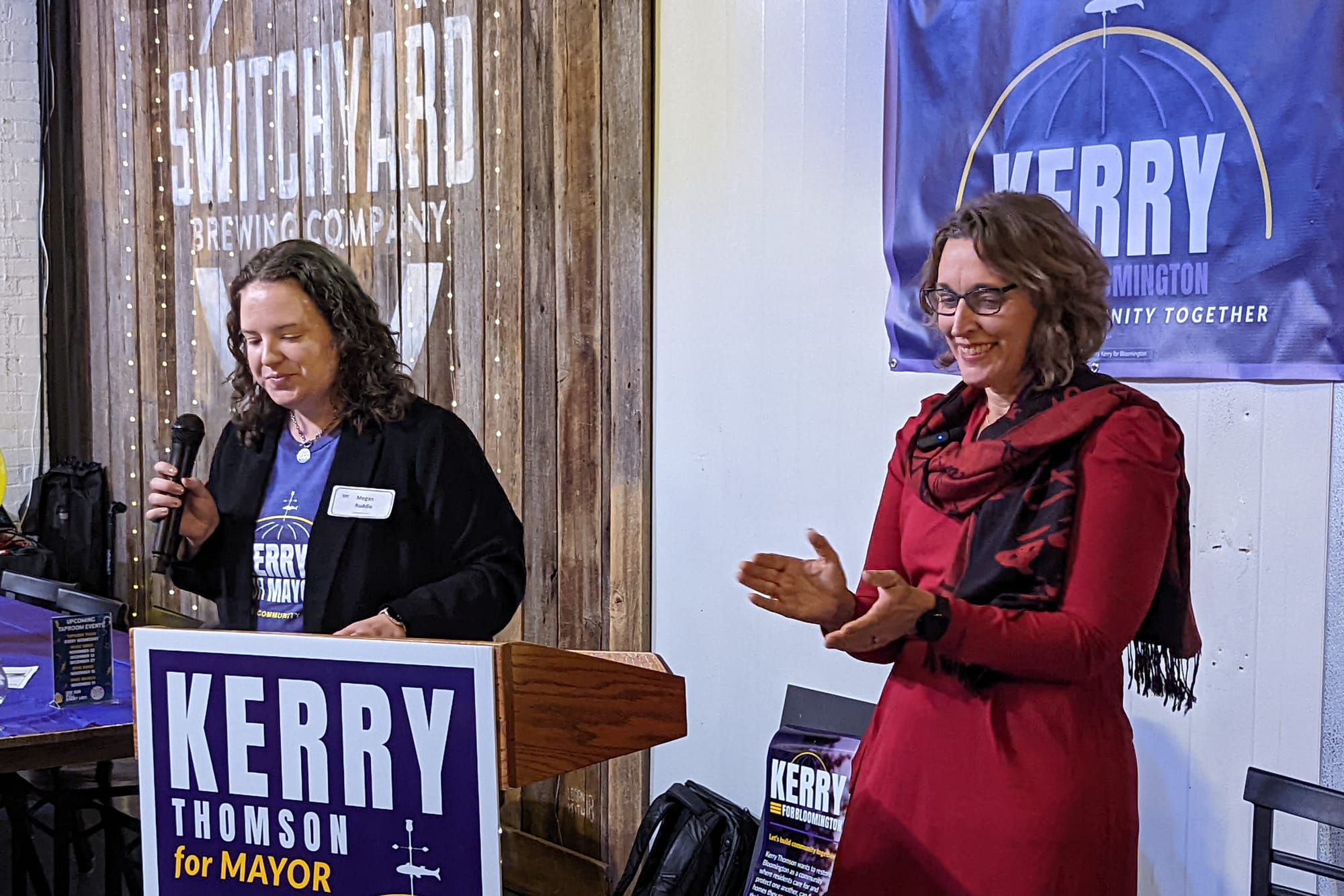

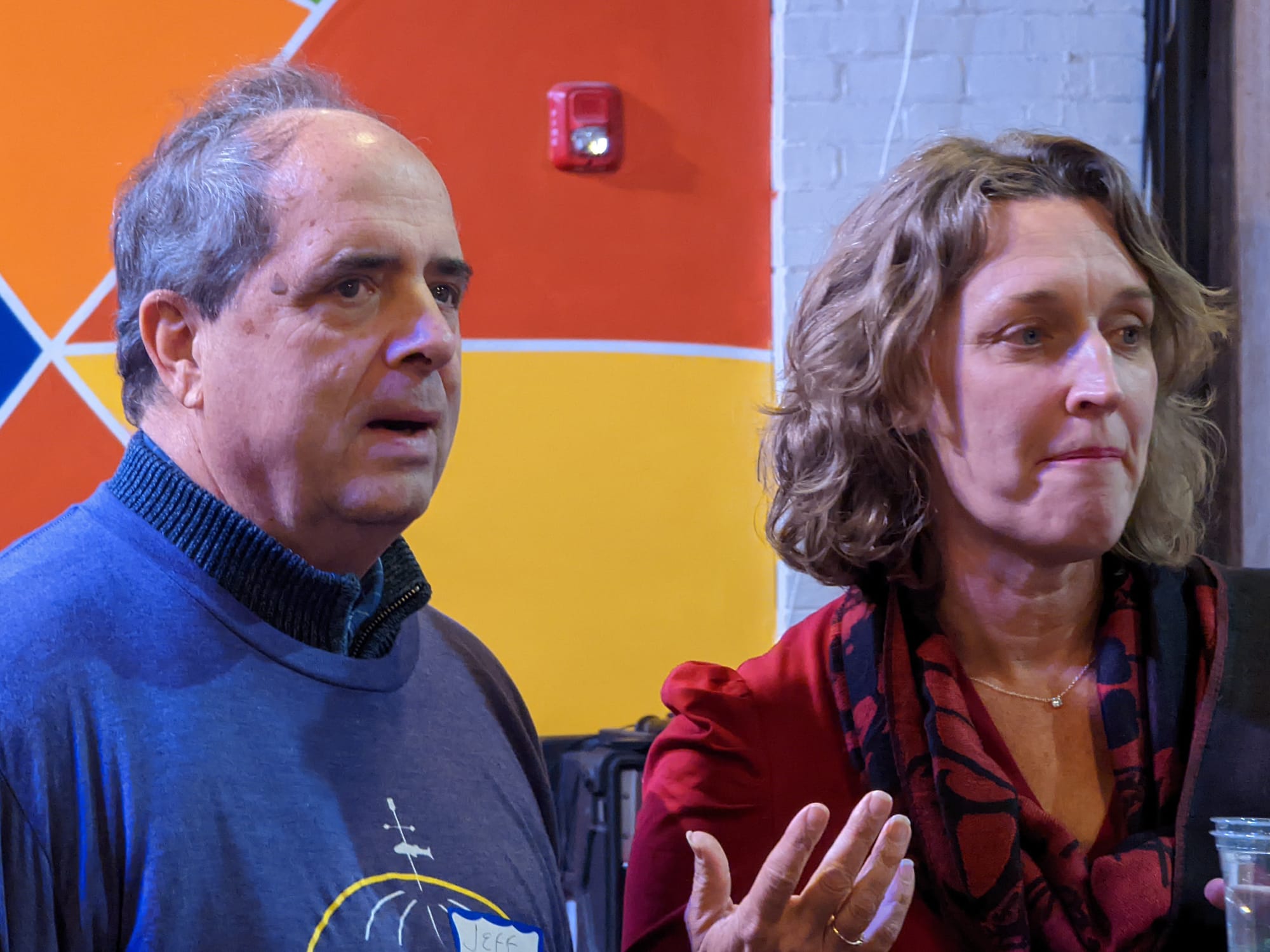

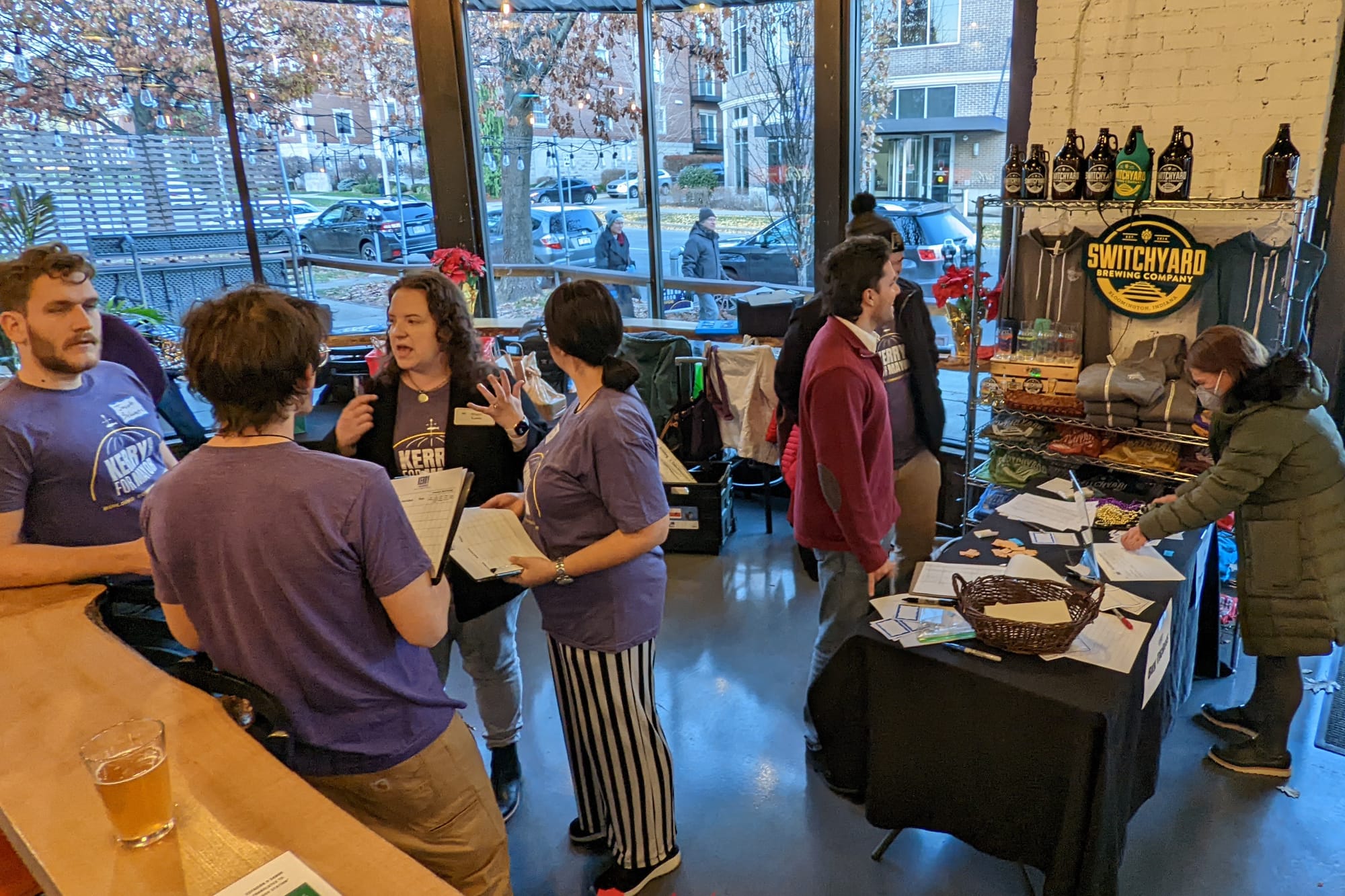




Comments ()